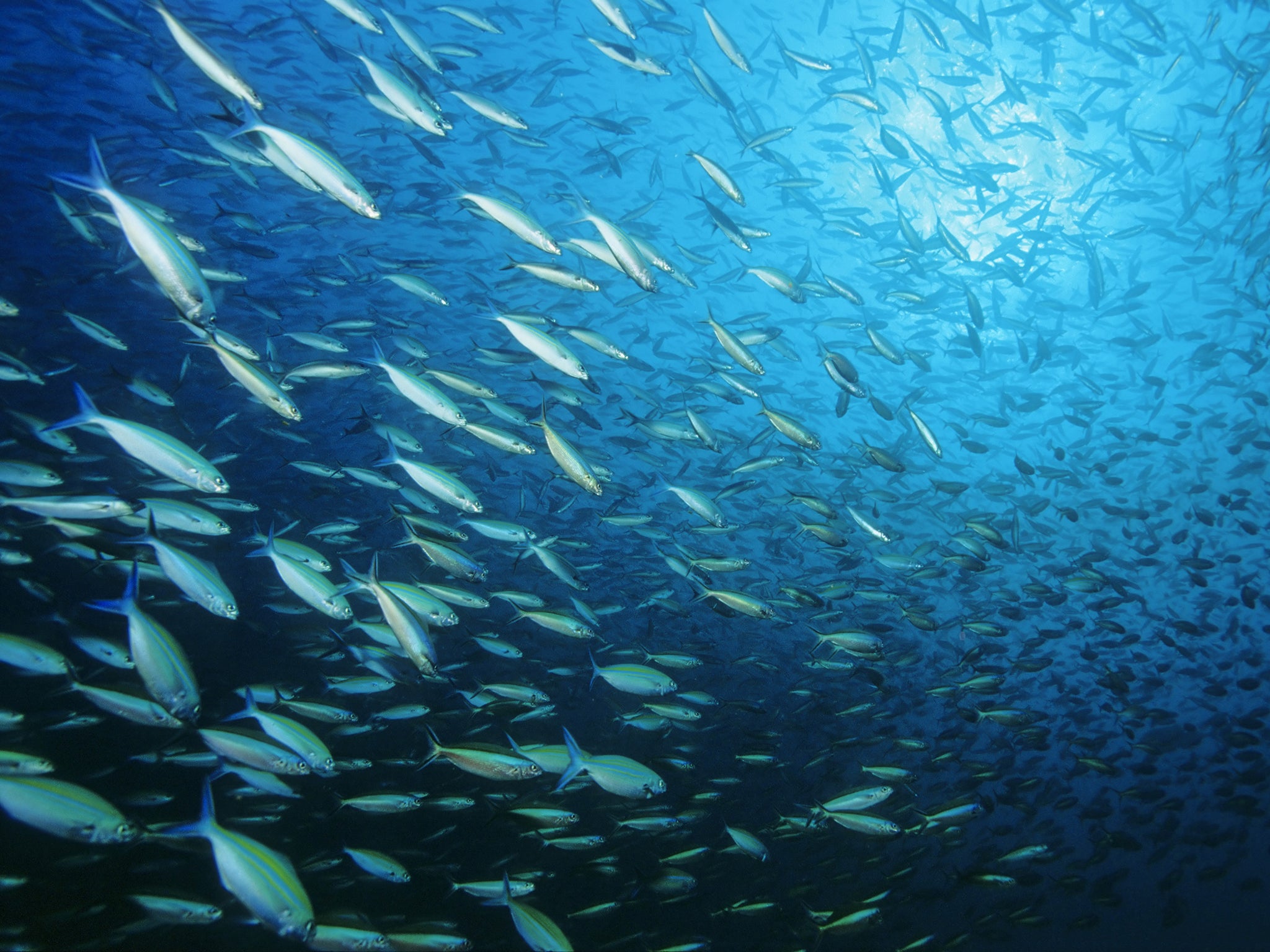Global warming could increase levels of toxic mercury in fish, experts warn
Higher rainfall and melting snow and ice expected to increase flow of poisonous organic matter into aquatic ecosystems, wherein it could enter the food chain and pose a risk to humans

Your support helps us to tell the story
From reproductive rights to climate change to Big Tech, The Independent is on the ground when the story is developing. Whether it's investigating the financials of Elon Musk's pro-Trump PAC or producing our latest documentary, 'The A Word', which shines a light on the American women fighting for reproductive rights, we know how important it is to parse out the facts from the messaging.
At such a critical moment in US history, we need reporters on the ground. Your donation allows us to keep sending journalists to speak to both sides of the story.
The Independent is trusted by Americans across the entire political spectrum. And unlike many other quality news outlets, we choose not to lock Americans out of our reporting and analysis with paywalls. We believe quality journalism should be available to everyone, paid for by those who can afford it.
Your support makes all the difference.Global warming could lead to raised levels of toxic mercury in the fish we eat, new research suggests.
Increased rainfall and melting snow and ice is expected to increase the flow of organic matter into aquatic ecosystems in large parts of the northern hemisphere.
Research conducted in Sweden predicts that this could lead to a sevenfold increase in the mercury content of zooplankton, tiny marine animals at the base of the ocean food chain.
As the small creatures are eaten by larger ones, the mercury is concentrated until it reaches high enough levels in large fish such as cod to pose a potential risk to human health.
Mercury is a poison that can damage nerves. Children may be especially at risk from exposure to fish-derived mercury while their brains and nervous systems are developing in the womb.
Up to 17 per 1,000 children from subsistence fishing communities in Brazil, Canada, China, Columbia and Greenland have been shown to suffer from mental impairment due to the consumption of mercury-contaminated sea food, according to the World Health Organisation.
In fish and other sea creatures, the metal is present in an organic form called methylmercury.
The new research shows that organic run-off linked to global warming is likely to encourage the growth of bacteria, which go on to dominate the aquatic food web.
A “heterotrophic” food web based around bacteria generally has more levels of different organisms than an “autotrophic” food web founded on phytoplankton - microscopic ocean plants.
With a greater number of stages, a heterotropic food web may have the effect of increasing mercury concentrations, experts believe.
Lead researcher Dr Erk Bjorn, from Umea University in Sweden, said: “Our study confirms this hypothesis and shows that an increase of 15% - 20% of the content of organic matter in our waters can cause a shift from an autotrophic based to a heterotrophic-based food web and lead to the content of methylmercury increasing two to sevenfold in zooplankton.”
He described the findings, published in the journal Science Advances, as “critical”.
The predicted higher levels of organic matter run-off were in accordance with climate change scenarios for large regions of the northern hemisphere, including the Baltic Sea, said the scientists.
An up-to sevenfold increase in levels of zooplankton methylmercury was said to be roughly equivalent to the amount by which mercury pollution in ecosystems had risen during the entire industrial era since 1850.
A striking example of the way mercury contamination in the oceans can harm public health was seen in Minamata, Japan, where thousands of people suffered from a mystery nerve disorder between 1932 and 1968.
The condition, given the name Minamata disease, led to severe cases of brain damage, paralysis, incoherent speech and delirium.
It was eventually traced to a factory that had discharged waste liquid into Minamata Bay containing high levels of methylmercury. The poison was taken up by fish and shellfish which were consumed in large numbers by local residents and people from other districts.
PA
Join our commenting forum
Join thought-provoking conversations, follow other Independent readers and see their replies
Comments